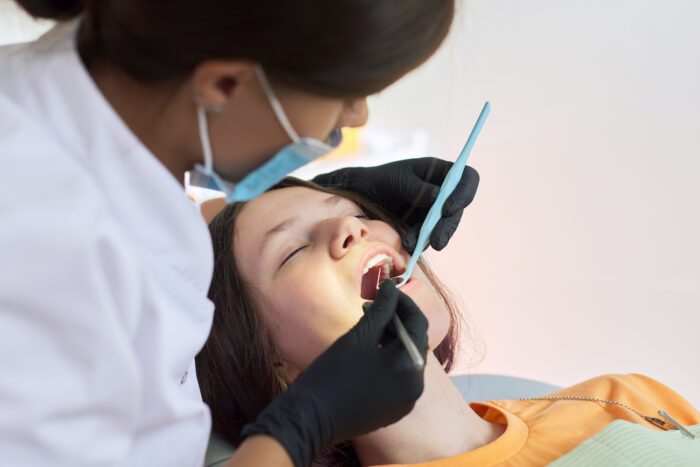Many patients tend to put off treatment as long as possible due to fear or anxiety about dental procedures. But the longer you wait to get treatment, the more decay and disease can spread and worsen. With sleep dentistry in Tulsa, OK, many patients can experience a more relaxing and comfortable visit to the dentist. But as with most medical processes, there could be some complications. By taking extensive training courses and working with certified anesthesiologists, your doctor can help minimize potential risks to get you the care you need.

How Sleep Dentistry in Tulsa, OK, Works
Sleep dentistry and sedation dentistry are terms that are often used interchangeably, but they are different. Both methods can help provide treatment to patients who suffer from anxiety or even mobility disorders. Oral sedation allows the patient to remain conscious during treatment, meaning they can respond to stimuli and participate in conversations with their dental care team. Sleep dentistry, on the other hand, uses a general anesthetic to put a patient to sleep during treatment. General sedation is administered by a certified dental anesthesiologist to ensure patients are healthy and monitored during their appointments.
When is Sleep or Sedation Dentistry Used?
Sleep and sedation dentistry is often only available by direct appointment. So, if you have anxiety about your procedure, it’s crucial to let your dentist know ahead of time. Oral sedation methods are medications taken prior to your appointment that provide a calming effect. Sleep dentistry uses an IV to administer a general anesthetic. Because they can interfere with your response time and muscle movement, it’s important that you have a trusted friend or family member drive you to and from your appointment.
Sedation methods are often used for patients who have dental anxiety or who have difficulty controlling their muscles. Oral sedation is more common for routine or quick procedures, such as a dental cleaning or cavity filling. Sleep dentistry is often reserved for more intensive cases, such as full-mouth reconstruction.
What are the Risks of Sedation Dentistry?
Most patients experience little to no side effects from sedation or sleep dentistry. The most common risks associated are drowsiness and nausea. Before performing any kind of sedation, your dentist will need to examine your medical history and record to ensure you’re clear for treatment. Some patients may be allergic to common sedation methods and will need to find an alternate treatment. It’s highly important that you are open and honest with your dentist and disclose any medications or health conditions you may have.
Sleep dentistry is often slightly riskier than sedation dentistry. That’s why Henrich Dental works closely with a certified dental anesthesiologist to provide high-quality care and treatment for our patients. Our anesthesiologist is trained and educated in proper sedation techniques and will monitor you throughout the procedure to ensure your health and safety. Call us today at (918) 262-4731 to schedule a consultation and see if sleep dentistry could help you get the treatment you need.
